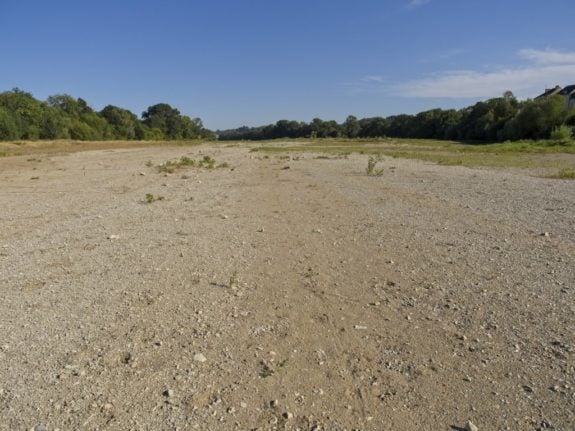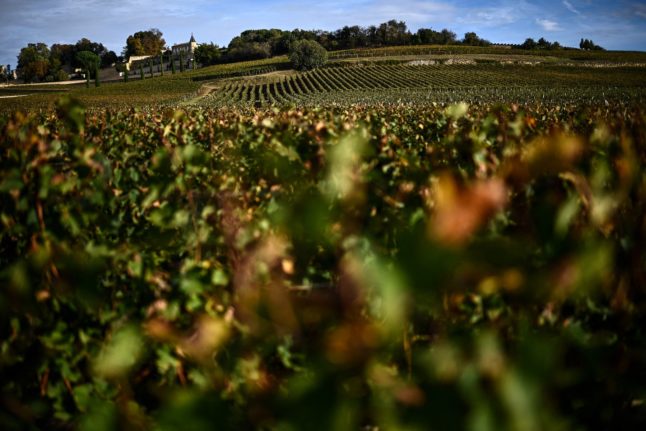At least five outdoor jacuzzis in the area surrounding Lac de Gérardmer in the Vosges area of eastern France, have been punctured by a masked vigilante, who enters the gardens of holiday lets and second homes, and pierces the linings of the spa baths using a drill
The eco-warrior – who has been spotted on CCTV but covers their face with a turquoise scarf and has yet to be identified – leaves a handwritten message at the scene that reads: “Water is made for drinking! You massacre the Vosges… More seriously, the planet is going bad, wake up!”
The drought situation in the area is so bad that, earlier this month, authorities drew water from the lake, intending to use it to supply the town with water – but it was declared unfit for human consumption after testing.
MAP: Where in France are there water restrictions and what do they mean?
Water levels at the lake – the largest natural lake in the Vosges mountain range and a popular destination for tourists – have dropped by 20 centimetres, and it could be pumped for agricultural use for several more weeks if the already long-running drought conditions continue.
One property owner, who was a victim of the eco-vandal told Le Parisien: “We have an individual who, in the middle of the night by breaking and entering, sabotaged the jacuzzi. Always with the same pseudo-ecological message that explains that the planet is going bad and that we must wake up.”
Mayor Stessy Speissmann condemned the criminal acts, describing them as “inadmissable”, but said it highlighted the problem in a small town that sees its population increase from 8,000 to between 20,000 and 30,000 at peak tourist time.
“We are in the middle of a conflict of use with the problem of water. Some people locally believe that if this resource is lacking, it must be prioritised for residents.”
A number of residents confirmed the mayor’s perception.
One said: “We, the inhabitants of Gérardmer, are still depriving ourselves of water. And we fill up [their hot tubs] every weekend. It’s ridiculous.”



 Please whitelist us to continue reading.
Please whitelist us to continue reading.
Member comments